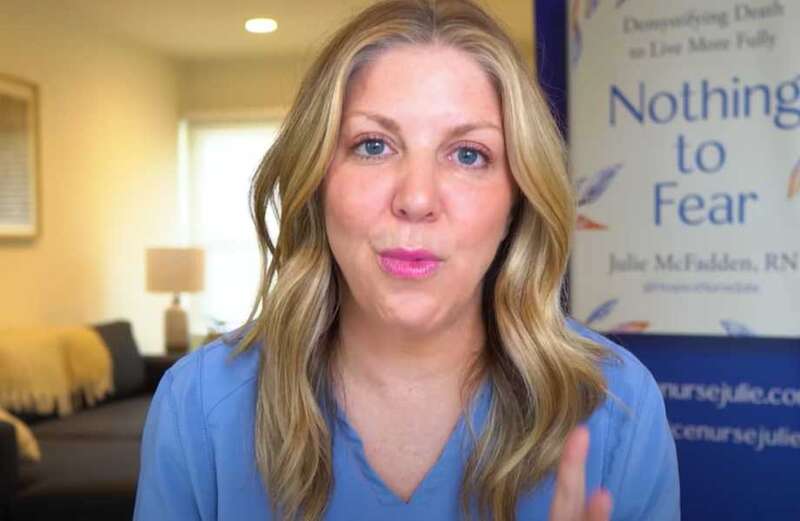AN end-of-life nurse has revealed some of the most surprising things about death which she found "mindblowing" when she first started her career.
Hospice worker Julie McFadden has witnessed it all and is now sharing her insights to help teach people more about death and the dying process.


Sharing her thoughts on YouTube, the 41-year-old is trying to make people "less scared" of dying.
"There are a lot of unknowns about the end of our lives which I think can make people more afraid," Julie said.
"But the more I've been around people at the end of their life the less I am afraid because I've seen with my own eyes the way our body helps us prepare for that.
 Arsenal coach Cuesta, 25, already has Juventus on his CV & speaks six languages
Arsenal coach Cuesta, 25, already has Juventus on his CV & speaks six languages
"And the different things that are comforting to us that happen to us as we die."
THEY CAN HEAR US
Julie has revealed three fascinating facts about death which she found most shocking when she first became an end-of-life nurse.
The first thing that astonished her was that people on the brink of passing away can still hear - even when it seems like they can't.
This is sometimes known as the breaking down of the unconsciousness wall.
"There have been studies done on people who were dying which showed the hearing sensor in the brain was the last bit to shut down," the nurse explained.
This should bring relief to people who can rest assured knowing what they say to their loved one in their final moments is being heard - even if they are unconscious.
On the flip side, Julie said people should make sure they are "respectful" of their loved ones when in the same room.
"Please don't argue, or don't talk about them like they aren't there because we do believe they can hear you," she said.
"As a hospice nurse, I always try to speak to the people who are unconscious like they could answer me back."
Julie, who previously worked as an ICU nurse, added that she has witnessed many people who came out of comas to tell her that they "could sense" what was going on while they were asleep.
 I’m a 41-year-old mum but had acne - my spots were like boils
I’m a 41-year-old mum but had acne - my spots were like boils
"They could hear certain things and could sense people in the room they knew somewhat what was going on," she said.
"And we do think this is the same for the dying person."
UNIMAGINABLE PHENOMENA
Julie described the second one of these as the 'deathbed phenomenon'.
The term is used to describe a series of experiences that occur to someone moments before they pass away.
"I know I talk about this all the time but this is mindblowing," she said.
This phenomenon includes something called 'deathbed visioning'.
These end-of-life visions are different to hallucinations caused by psychosis or delirium.
They usually involve people who see loved ones who have already passed.
She also mentioned 'terminal lucidity', but what you might know as 'the rally or the surge'.
This happens when someone who looks very ill suddenly gets a burst of energy and look like they're getting 'better',
Some think a burst of cortisol or other hormones might make people "perk up" in their final days, but Julie said we don't know why this happens.
While she described the phenomena as "shocking" and "unbelievable", she also said it was "comforting."
"Hence why I always educate about it,"she continued.
"I feel like it's important for me as a hospice nurse to educate the general public that these are things that actually happen. We don't know why but they do."
DEHYDRATION
Perhaps most shockingly, Julie said being dehydrated can help someone die a more peaceful death.
"This is because a dying body cannot handle the hydration a living body can," she said.
"So if we try to hydrate a dying body at the end of life, they will become overloaded with fluid.
"The fluid will not stay in the veins but seep out and cause swelling, and eventually respiratory distress."
When it's time, the body will help us die by keeping us dehydrated.
"The more dehydrated you are the better you will feel," she said.
"You're going to go into ketosis and your body will release endorphins that will give you a euphoric pain which will dull the pain."
The end-of-life nurse has previously revealed the ‘worst’ diseases to die from – and the most peaceful ways to go



































